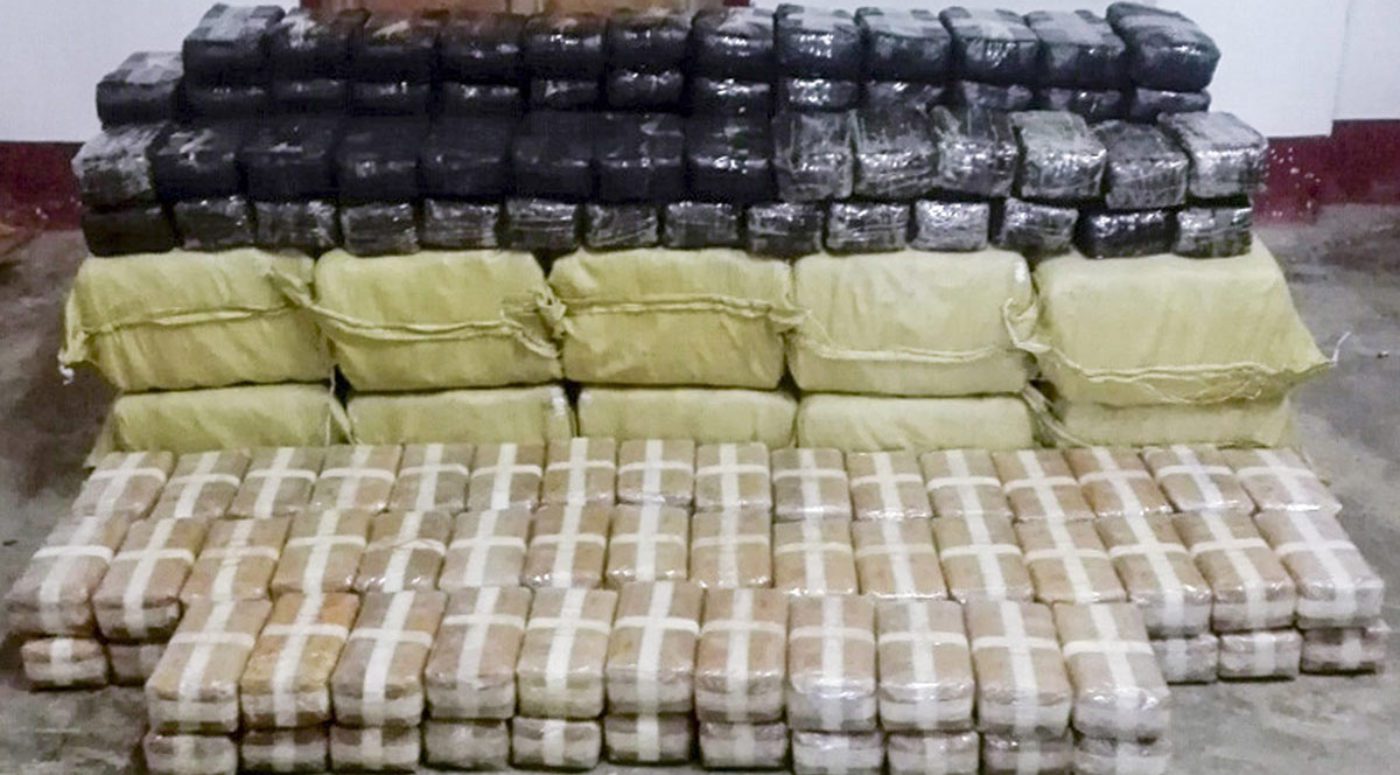

Drug importation offences in the UK have seen a significant increase and the justice system is responding more harshly as a result, highlighting the importance of seeking legal assistance as early as possible. Consulting a criminal defence solicitor can provide clarity and guidance, ensuring your rights are protected from the outset. In this article, we will address several critical questions you might have, including whether you need a solicitor for charges related to drug importation, and what possible defences could be available to you. We will also delve into the question of bail, exploring whether it is a feasible option in such cases.
Do I need a solicitor for importation of drugs?
Do you need a solicitor if you are facing importation of drugs charges? The short answer is yes, and here’s why:
- Importation of drugs is a complex offence that can involve multiple legal facets such as evidence analysis, procedural compliance, and the application of drug laws. A solicitor who specialises in criminal defence will have the expertise to review the evidence against you, such as testimonies, surveillance, and forensic data, ensuring that all procedures were properly followed.
- A solicitor can also help you understand the specific charges you are facing, which may range from possession with intent to supply to conspiracy to import drugs. Each of these charges carries different legal ramifications and potential penalties. By having a clear understanding of the charges, a solicitor can advise you on the best legal strategy, whether it involves negotiating a plea deal or preparing a robust defence for trial.
- Moreover, drug importation cases can often cross international borders, involving complex legal considerations that a seasoned solicitor can navigate. They can coordinate with legal experts in other jurisdictions if necessary and have a comprehensive view of how international laws may affect your case.
What are possible defences for importation of drugs?
One of the primary defences concerned here is the lack of intent or knowledge. For a conviction to occur, it typically must be proven that the accused had knowledge of the drugs and intended to import them. If you can demonstrate that you were unaware of the presence of drugs, perhaps due to having been misled or used as an unwitting participant, this may form the basis of your defence.
Another potential defence is duress. If you can establish that you were coerced or threatened into participating in the importation of drugs against your will, this can be a valid defence. The threat, however, must be immediate and significant, typically involving serious harm or death, to be considered in court.
Entrapment might also be argued if the police induced you to commit the crime you would not have otherwise been inclined to commit. Although English law does not formally recognise entrapment as a defence, it can influence the proceedings if it’s determined that police inducements were improper.
Mistake or genuine belief can also sometimes serve as a defence, if it can be proven that there was a reasonable and honest mistake regarding the facts of the case. For instance, if you genuinely believed you were importing legal substances rather than illegal drugs, this may weigh in your favour.
Will I get bail for importation of drugs?
For drug importation charges, the courts consider the gravity of the offence seriously due to its association with organised crime and serious harm to society. This makes obtaining bail potentially more challenging but not impossible. Several factors will influence whether you receive bail, including:
- Nature and seriousness of the offence: Given that drug importation is considered a serious offence, the courts will evaluate the specifics of your case, such as the type and quantity of drugs involved.
- Likelihood of committing further offences: The court will assess whether granting you bail poses a risk of continuing unlawful activities.
- Risk of absconding: They will determine if you might fail to appear at subsequent court dates. Factors like previous compliance with court proceedings or having strong ties to the community (such as family and employment) can influence this assessment.
- Previous record: If you have a history of offences, especially those related to drug crimes, it could impact the court’s decision on bail.
Will I have to go to court if I’m arrested or charged for importation of drugs?
For minor offences or first-time offenders where small quantities and lesser classifications of drugs are involved, it’s conceivable that your case might be managed outside the courtroom. However, this is uncommon in instances of drug importation since it typically involves larger quantities and a more serious type of drug-related crime.
Circumstances that usually necessitate court proceedings include:
- If you are charged with importing Class A drugs, which are considered the most dangerous and carry heavier penalties.
- If the quantity of drugs imported is substantial, indicating intent to distribute rather than personal use.
- If there are aggravating factors, such as involvement with organised crime or prior convictions.
If you find yourself in a situation involving drug importation charges, engaging with a criminal defence solicitor at the earliest opportunity is vital to the outcome of your case.
Will I go to jail if found guilty of importation of drugs?
If you are found guilty of importing drugs, the likelihood of prison depends on factors such as:
- The class and quantity of the drugs involved.
- Your role in the offence (e.g., organiser, courier, minor role).
- Any previous convictions you may have.
- Whether you pleaded guilty or were convicted after a trial.
- If you cooperated with the authorities during the investigation.
Judges follow sentencing guidelines that aim to ensure a consistent approach. For higher quantities of Class A drugs, the starting point could be a substantial custodial sentence, which could exceed several years. However, if you’re involved in a lesser role or dealing with smaller quantities of Class B or C drugs, the sentence might be less severe, potentially including alternatives to imprisonment like community service or fines.
Will I go to jail if it’s my first offence of importation of drugs?
The penalties for the importation of drugs can be severe, but not all cases result in a prison sentence, especially if it is your first offence. Whether or not you go to jail depends on several factors that the court will carefully evaluate. Here are the key considerations:
- Type and quantity of the drug: The class of the drug (A, B, or C) and the amount involved play a significant role in sentencing. Class A drugs, such as cocaine or heroin, carry the most severe penalties, while smaller quantities of Class B or C drugs may result in less harsh outcomes.
- Role in the offence: The court will assess your level of involvement in the importation. If you played a minor role, such as being coerced into acting as a courier, this may result in a more lenient sentence compared to someone who organised or financed the operation.
- Intent and circumstances: If the drugs were intended for personal use rather than distribution or sale, this could lead to a reduced sentence. However, evidence of intent to supply will likely result in harsher penalties.
- Mitigating factors: First-time offenders, evidence of remorse, cooperation with authorities, or personal circumstances (such as being under duress) can all influence the court to impose a lighter sentence, such as a suspended sentence or community service.
- Legal representation: Having an experienced solicitor is crucial. They can present mitigating factors, challenge the prosecution’s evidence, and argue for alternatives to a custodial sentence, especially if it is your first offence.
Can I get Legal Aid for importation of drugs?
Eligibility for Legal Aid in criminal cases is determined by two main criteria: the means test and the merits or interests of justice test.
The means test evaluates whether you can financially afford your own legal representation. It considers your income, savings, and any other financial assets to assess if you fall below the threshold for funding assistance. If you receive certain benefits, such as Income Support or Universal Credit, you might automatically qualify on the financial aspect.
Secondly, the merits or interests of justice test assesses the seriousness of the case and whether it is in the interest of justice for you to have legal representation provided at no cost. Given the seriousness of drugs cases, there is usually no issue in passing this criteria.
Where to get more help
If you are unsure about your rights or the implications of the charges against you, the legal process can feel very overwhelming. In these cases, it is essential to have experienced solicitors by your side who can provide insightful advice and robust defence. With a commitment to protecting your interests and securing the best possible outcome, the team at Stuart Miller Solicitors is ready to help. Get in touch today for a free consultation about your options.
OUR COMMITMENTS TO YOU:
-
Responsive
A legal expert will consult you within 24 hours of making an enquiry.
-
Empathetic
We will always treat you with trust, understanding and respect.
-
Specialised
Your case will be handled by an expert who specialises in your type of offence.
-
Proactive
We will take early action to end proceedings as soon as it is practically and legally possible to do so.
-
Engaged
You will be kept updated on your case at all times. We will provide a named contact available to answer your questions.
-
Caring
We understand this is a difficult and stressful time for you and your family. Our team will support you every step of the way.
-
Tenacious
We will never give up on your case. We fight tirelessly to get you the best possible outcome.

